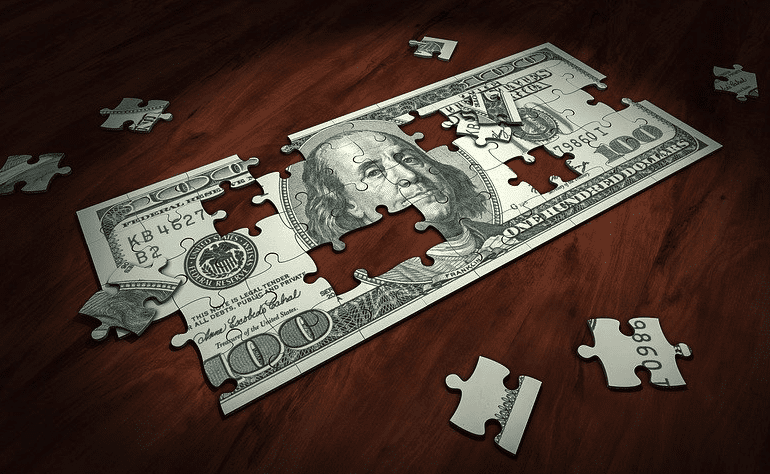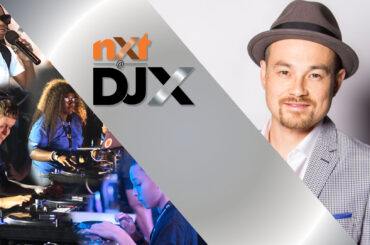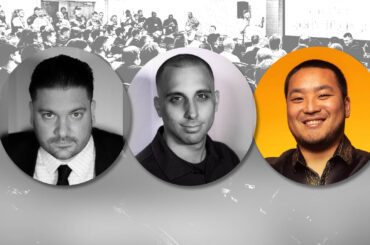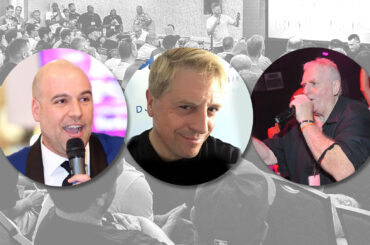A question I get all the time about my business is how I handle DJ payment. Do my DJs get an hourly rate or a percentage of the booking?
I know some multi-op owners who pay an hourly rate, but I choose to pay DJs a percentage of the entertainment portion of the booking fee. There are a few reasons why I think this is an effective way to compensate your staff.
First let me explain what I mean by the “entertainment portion of the booking fee.” We offer a ton of upgrades to our clients — everything from lighting options to HD TVs to photo booths.
Some multi-op owners pay an hourly rate, but I choose to pay DJs a percentage of the entertainment portion of the booking fee.
My DJs do not get paid on those upgrades, nor do they have to deal with them. We have techs who deliver the extra equipment to the jobs, set it up, run it and break it down. So my DJs don’t have to deal with the upgrades, nor do they benefit from them (other than making their set-ups look more impressive). So a typical wedding booking might be for $3,600 — $1,750 is for the entertainment portion and the other $1,850 is for the photo booth and lighting. My DJs get a portion of the $1,750, not the $3,600.
How much of a percentage? That varies based on their experience level, the amount of referrals they generate, and whether they own their own equipment (wait, I let my DJs own their own gear? Yup, I’ll handle that in a future article.)
My DJ payment scale goes from 35% to 55% and I’ve seen other company’s pay scales go higher than that. What you need to do is create a model that fairly compensates your staff while leaving enough money to run the business (which means everything from marketing, insurances, taxes, office rent, etc).
My scale goes from 35% to 55% and I’ve seen other company’s pay scales go higher than that.
So why does this work rather than just paying my DJs, say, $200 per hour? Because we offer discounts on our packages as the date gets closer. A year in advance, we have our price set and we hold firm. Six months out, we offer a discount. Three months out, we increase the discount.
Booking a discounted package means the DJ makes less on the job. So what is their incentive? Get booked far in advance! How does one do that? Besides the obvious answer of generating more referrals, a DJ can increase their chances of getting booked a year (or more) in advance by getting a lot of reviews from past clients, and attending our showcases. Both of these take some time and effort from the DJ but they are often rewarded with a full-price booking rather than a discounted one.
I also have DJs that would rather not go out for anything less than top dollar, so they know they should block off any open dates as we get closer to them. It’s also a way for me to not have different prices for different DJs, but in a way I do because, as you can imagine, it is usually the veteran DJs who get booked far in advance while a newer DJ will get booked closer to an event. So I don’t have to label some of my DJs as $1,750 DJs while others are $1,450 DJs, but more often than not, it works out that way.
It is usually the veteran DJs who get booked far in advance while a newer DJ will get booked closer to an event.
DJ payment scales are based on many factors. so I don’t expect anyone to adopt my business model without giving it lots of thought and maybe even experimentation.
What works for me (and others) might not work for you so please, just take this as one way of doing things. As you’ll often see on the internet, YMMV.
Prince aficionado and owner of Elite Entertainment in Tinton Falls NJ, Mike Walter’s multi-op employs 20 MCs and runs more than 1,000 events annually. For more advice on running your multi-op you can purchase his book here.
To check out more business tips, click here.







